Eight ways the UK government ‘eroded’ human rights in 2023, according to damning new report
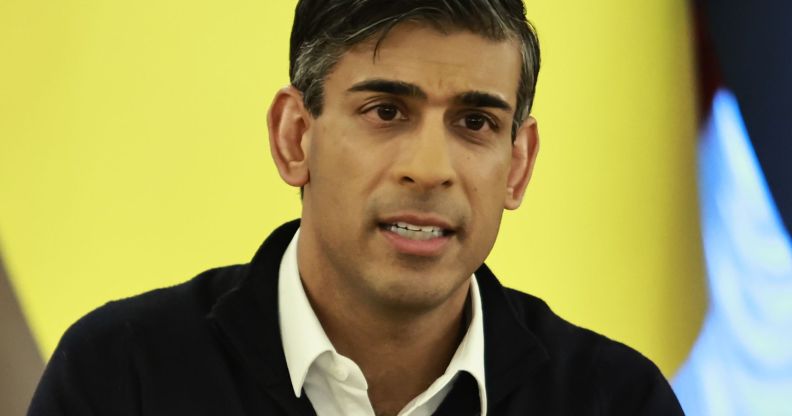
The UK government under Rishi Sunak’s leadership has seen the ‘erosion’ of human rights, according to a damning report. (Getty)
A damning new report has condemned the UK government for its ‘erosion’ of human rights protections and failure to act on “meaningful” pledges.
As part of its World Report 2024, Human Rights Watch (HRW) said that the UK is “nose-diving” in its domestic human rights record, which is undermining its efforts to “promote the rule of law and human rights globally”.
The report cited multiple human rights failures in 2023, including efforts to criminalise protests and worker strikes, as well as the further demonisation of asylum seekers.
HRW also noted the government’s failure to “take any meaningful steps” to act on many of its human rights-related pledges, including the inaction on conversion therapy and a failure to “fairly compensate Black Britons” who, it says, were “harmed by the government” through the Windrush scandal.
The organisation also addressed the “abusive rhetoric” towards LGBTQ+ people and the rise in anti-LGBTQ+ violence, saying that the government is “undermining” the protections of trans people.
Here is a breakdown of all areas the UK is failing on, according to the report on Britain’s human rights record in 2023.
1. Rule of law and human rights
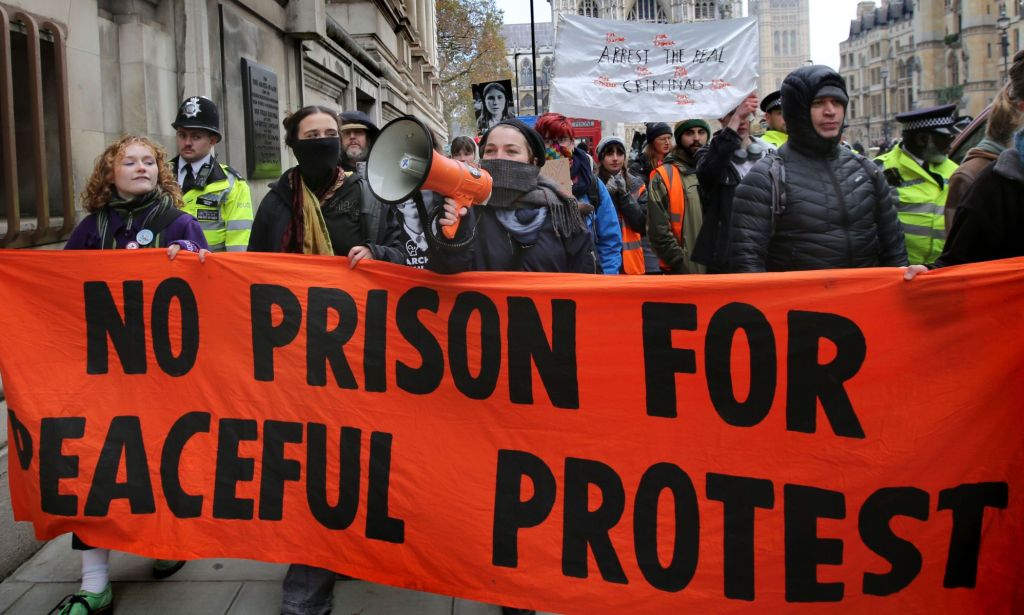
While Human Rights Watch noted that the UK had introduced a “number of laws” that it says “undermine free speech” over the course of 2023, it chiefly criticised the introduction of the Public Order Act in April.
The bill, introduced in response to the increase in climate-related protests and workers’ strikes, expands upon anti-protest measures including stop and search, and introducing protest banning orders.
HRW largely criticised these measures, saying they undermine the “freedoms of expression, peaceful assembly and association” of the public. It also noted that at least 13 climate protestors were behind bars at the beginning of 2023 and that number increased over the year.
It further criticised the act for being “rushed through Parliament” in anticipation of King Charles III’s coronation. At least 52 protestors were arrested during the coronation.
The organisation also noted the introduction of the anti-boycott bill in June, which would restrict public bodies, including local councils and police precincts, from diverting investments to avoid contributing to human rights issues abroad.
HRW did, however, commend the government for dropping plans to repeal the Human Rights Act in favour of a weaker bill that would have undermined human rights further. It did, however, heavily criticise the conservatives for plans to withdraw from the European Convention on Human Rights.
2. Sexual orientation and gender identity
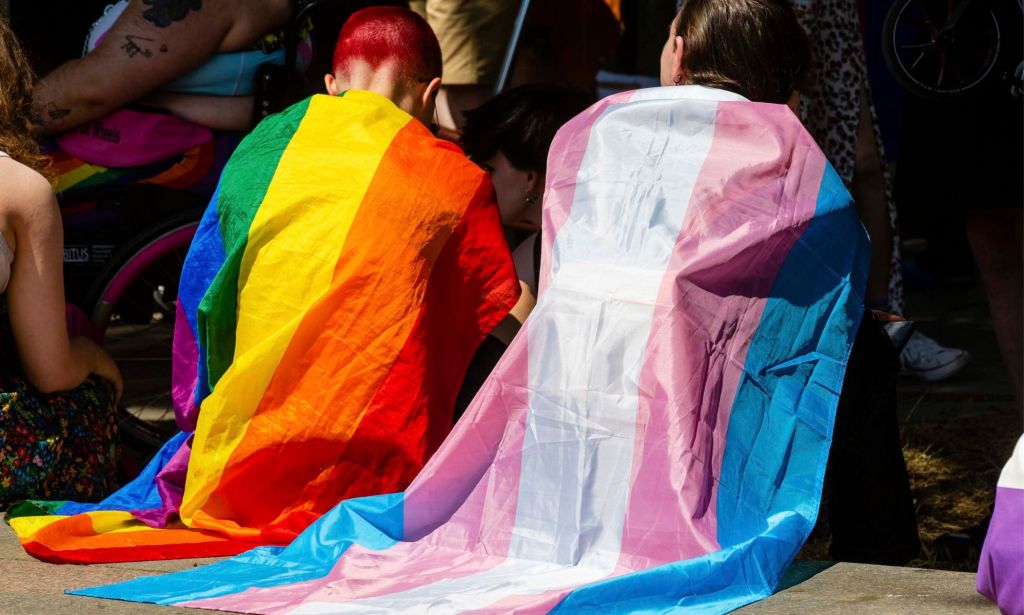
In criticising the UK government’s attitude towards LGBTQ+ people, Human Rights Watch pointed to the report by UN independent expert, Victor Madrigal-Borloz, following a 10-day visit to the country.
The report, published in May, demonstrated great concern over the way the UK government had helped to bolster the “increased bias-motivated incidents of harassment, threats, and violence against LGBT people”.
Madrigal-Borloz was particularly critical of the Equality and Human Rights Commission (EHRC), which he said gave the government a “formula” to enact transphobic legislation.
All of this, HRW concluded, had contributed to the surge in anti-LGBTQ+ violence, particularly against trans people, which rose by 11 per cent compared to the previous year.
The Home Office, in its report on hate crime statistics, admitted that the rise in hate crimes could be due in part to the topics being “heavily discussed by politicians, the media, and on social media” over the past few years.
3. Asylum and migration
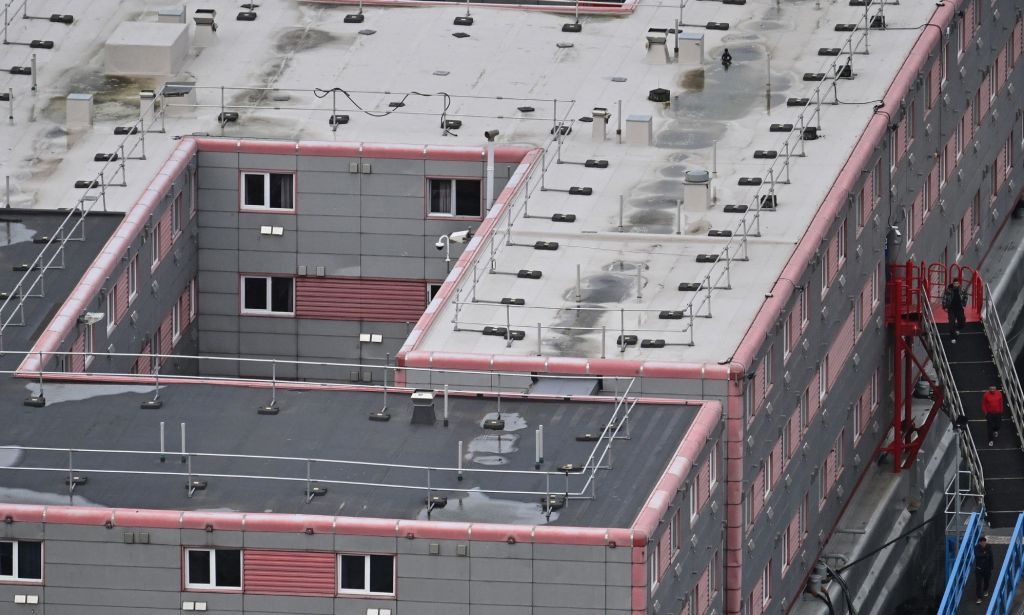
By far one of the most contentious topics highlighted in the report was the government’s decision to adopt the Illegal Migration Act in July, which bans access to asylum and modern slavery protections for anyone who arrives in the UK “irregularly”.
HRW noted that the bill is a “flagrant breach of the UK’s international obligations” in upholding human rights, despite the Conservative government continuing to defend it.
Those who have come to the UK seeking asylum are often forced to live in suboptimal temporary housing, which the report said regularly contains “rat infestations” and “mould”.
HRW also shamed the government for housing disabled asylum seekers in accommodations without adequate access or support services.
4. Rights to social security, housing and food
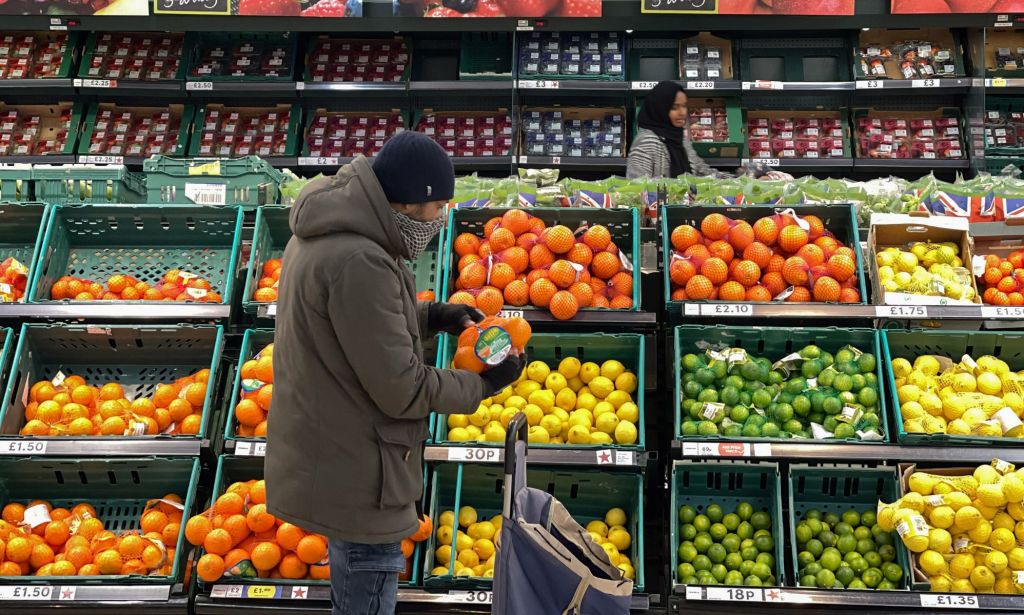
The cost of living crisis, coupled with government inaction, has had an undeniable impact of million of people in the UK, reducing access to food, heating and housing.
According to Trussell Trust, the UK’s largest food bank network, over 1.5 million emergency food parcels were delivered between April and September 2023 – a 16 per cent increase compared to last year.
Homelessness has been on the rise across the UK, too, with charity Shelter sharing in December 2023 that 309,000 people in England would be spending Christmas without a home, including almost 140,000 children.
The charity also found that 3,000 people were sleeping rough on any given night (a 26 per cent increase on the previous 12 months) and 279,400 were living in temporary accommodation (a 14 per cent increase).
Social housing waiting lists have increased as well according to HRW, which said more than 1.2 million households were currently waiting for social housing in England.
5. Rights of women and girls
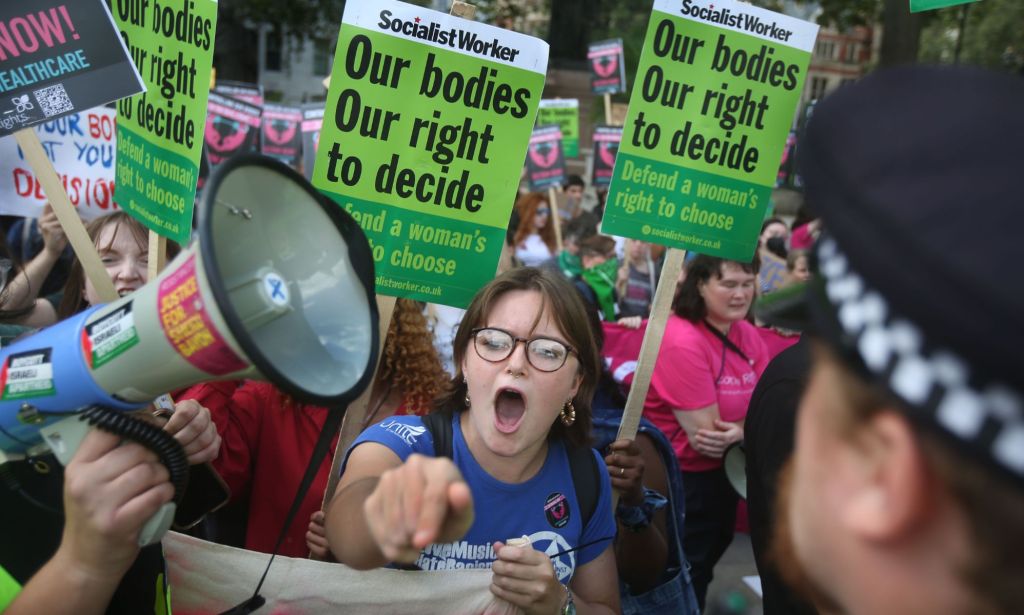
According to the HRW, the UK is failing women and girls on a number of fronts, including on abortion rights, domestic abuse and violence prevention, and equal pay.
Women’s charities said that authorities “continue to fail” rape and domestic violence survivors, two years after an ‘End-to-End Rape Review’ in 2021, which found that prosecutions relating to rape cases were diminishing.
Furthermore, activists have called for the UK government to overhaul abortion laws in England and Wales after a woman was sentenced to 28 months in jail for taking abortion pills to terminate a pregnancy beyond the legal timeframe.
In response to public outcry, an appeals court halved and suspended the woman’s sentence.
As for unequal pay, the Trade Union Congress reported in February that the average woman paid in the UK effectively works for free for nearly two months annually compared to the average man.
6. Racism and discrimination
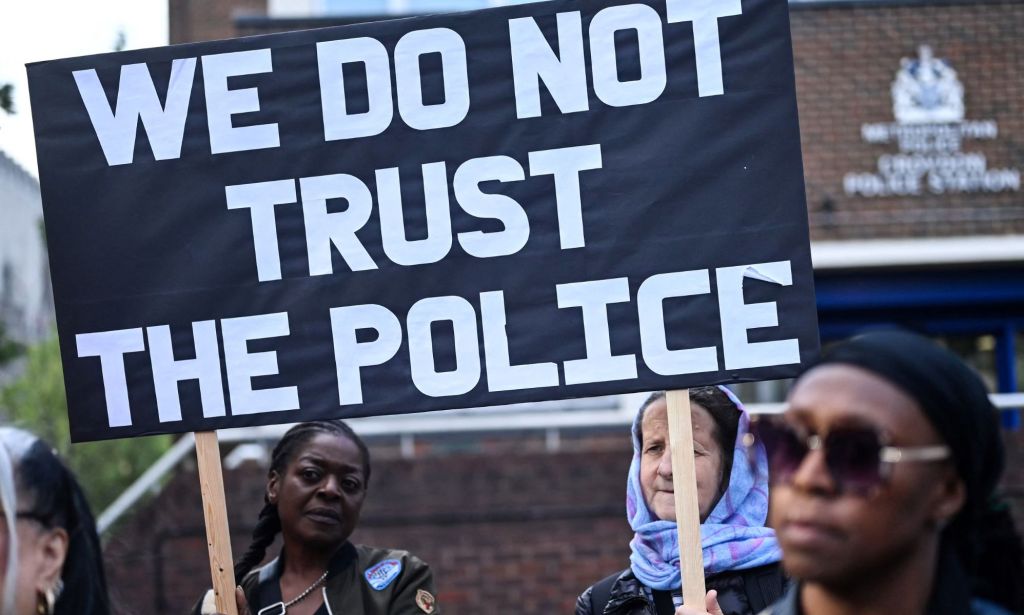
The main focus of the report’s criticism of the UK government’s approach to racism and ethnic discrimination protections was the failure of authorities to adequately protect marginalised groups.
HRW highlighted the damning 363-page report into the Metropolitan Police, dubbed the ‘Casey report’, which found that the police force is institutionally racist, homophobic and misogynistic.
The UN Working Group on People of African Descent also raised serious concerns about the “failure” to address racism in the UK, including the effects of the Windrush scandal.
Racially-motivated attacks against Black people remain high, too. In March, parliament called on state-funded schools to comply with anti-discrimination policies to curb the rise in attacks against Black students.
7. Environmental policies
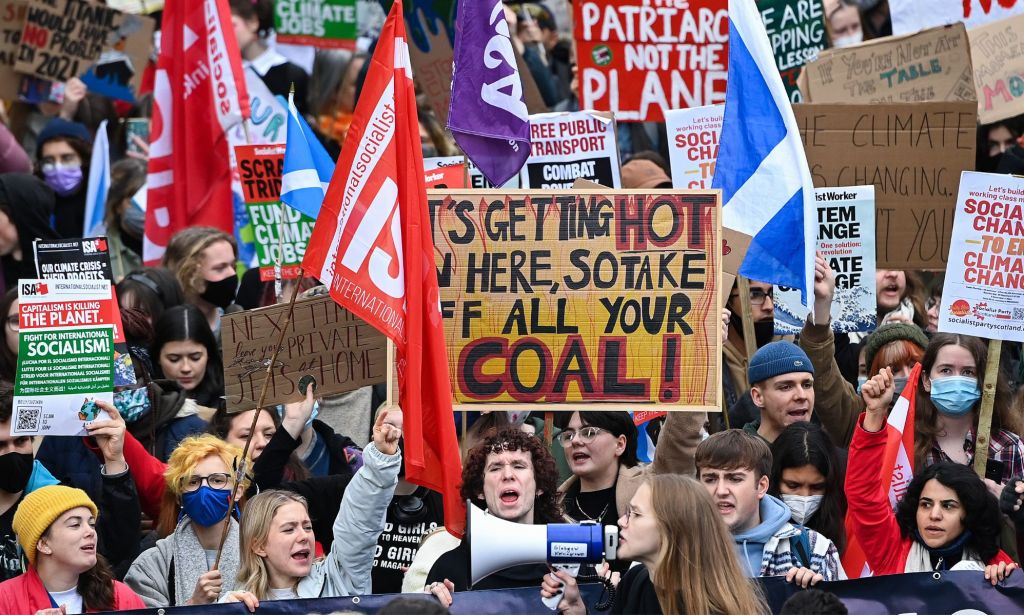
2023 was a year filled with broke climate promises and backtracking, according to HRW, which said that the government sought to scrap “key rules” on air pollution regulation and pledges to cut commissions.
Prime minister Rishi Sunak also announced in September 2023 that the government would delay the gradual phasing out of petrol and diesel cars, gas boilers and energy efficiency caps.
According to the HRW report, the policy has resulted in worsening air quality, with Black and diaspora communities facing the worst air quality.
8. Foreign policy

The HRW accused the UK of “turning a blind eye” on a number of international human rights abuses, including those in Rwanda and similar states.
The report also criticised the UK’s anti-immigration policy, which it says has contributed to its failure in resettling vulnerable Afghans following the takeover by the Taliban.
HRW said the UK was playing a “mixed role” in its leadership on multilateral forums, highlighting its role in addressing the human rights violations by Russia in its invasion of Ukraine and its efforts to investigate human rights abuses in South Sudan, whilst voting against resolutions on xenophobic prevention policies.
